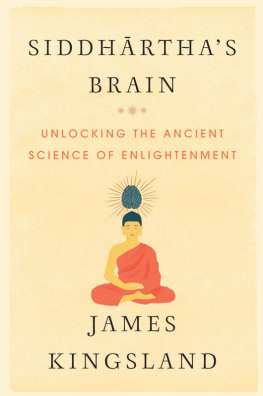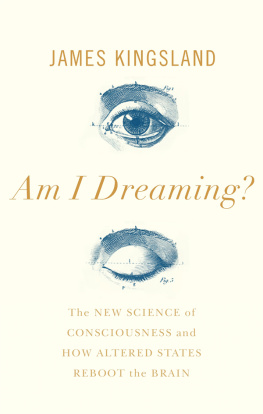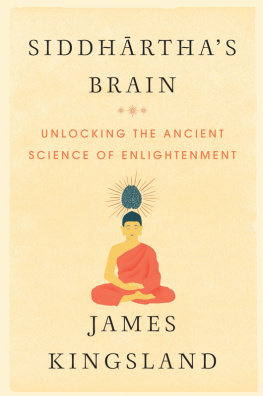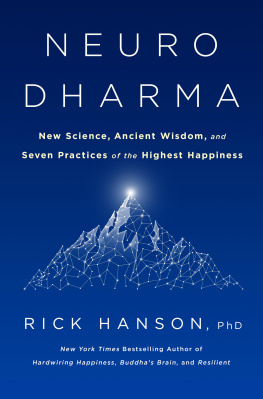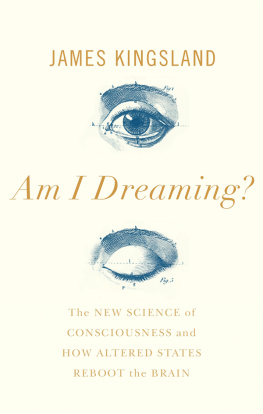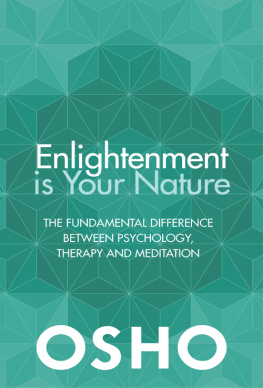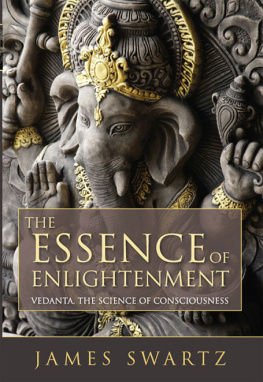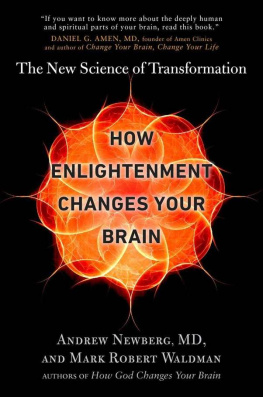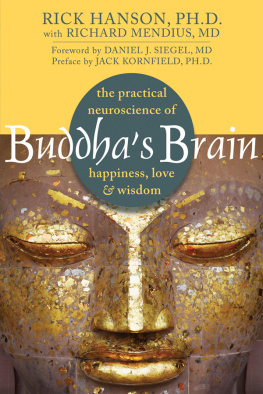CONTENTS
We are all mentally ill, said the smiling monk in the wide-brimmed hat, as if this explained everything. My partner and I were staying a couple of nights as guests at Amaravati Buddhist Monastery, near Hemel Hempstead in the Chiltern Hills of southern England. I was a science journalist with the Guardian newspaper and had traveled up by train from London the previous day to interview the abbot, a kindly Englishman in his fifties named Ajahn Amaro, who has been trained in the strict Thai Forest tradition of Buddhism. The three of us stood in bright morning sunshine on a path that led between neat flower beds from the painted wooden huts of the monasterys retreat center to a field of rough grass, where men and women were pacing very slowly and deliberately, each absorbed in a private world of his or her own. Some were walking back and forth between trees, following tracks worn in the grass by thousands of tramping feet. Others were relentlessly circling a bell-shaped, granite stupa at the center of the field.
A two-week retreat for about thirty laypersons had begun the previous evening, and this morning the abbotthe monk in the sun hathad sent them out into the grounds to practice walking meditation. His observation about our collective neurosis took me by surprise, following as it did from my own observation that the otherworldly activity in the field reminded me of a scene from a zombie movie I once saw. On reflection, it wasnt the most enlightened comment to direct to a revered Buddhist teacher or ajahn during a meditation retreat, but I was tired and grouchy after being awakened at four thirty in the morning by the monasterys great brass bell being struck somewhere outside in the darkness, summoning us from our dormitory to the meditation hall for an hour of chanting and contemplation.
I only later discovered that in Buddhist philosophy, a human being is not considered completely sane until he or she has become fully enlightened. Buddhists believe the mechanism of the human mind is faulty, like a clock running too fast or too slow. No matter how rational or mentally fit we believe ourselves to be, much of our lives is spent obsessing about our social and professional standing, about getting sick and growing old, yearning for more of this and less of that, chewing over our faults and those of other people. Buddhists believe that our minds create dukkha: the suffering or sense of unsatisfactoriness that is part and parcel of ordinary human existence, the incessant itch of wanting more pleasure and more possessions, trying to hold on to some experiences while frantically trying to push others away. To observe that everybody is mentally ill was the monks way of summing up this shared psychological predicament.
Earlier that day, in the thin gray light before dawn, sitting cross-legged on the floor with the monks and nuns before the gilded Buddha in the monasterys meditation hall, we had chanted:
Birth is dukkha;
Aging is dukkha;
Death is dukkha;
Sorrow, lamentation, pain, grief, and despair are dukkha;
Association with the disliked is dukkha;
Separation from the liked is dukkha;
Not attaining ones wishes is dukkha.
This was a far cry from the brisk, cheerful hymns we used to sing at morning assembly in the chapel of the Methodist boarding school I attended as a child. Instead of affirming the triumph of celestial beings over evil, here was a stark reminder that all human existence is mired in suffering. The message seemed to be that no one gets to live happily ever after: everything was not going to be okay. Regardless of the joys, loves, and achievements scattered along lifes path, around every corner awaited loss, disappointment, sickness, aging, and death. There would be no escaping these things, no matter how hard we worked, how much we earned, how healthily we ate, how often we went to the gym. It was an ancient formulation of the modern refrain, Life is a bitch, and then you die.
You may find this sort of reflection needlessly maudlin or you may see it as a bracing admission of the truth. Speaking for myself, I found the sentiment liberating. By saying the words out loud, we were acknowledging the lies we continually tell ourselves to get through the day. The down-to-earth honesty of the chant moved me. It brought a sense of reconciliation with reality. Even so, I was startled by the monks assertion that we are all mentally ill. Surely its one thing to suffer because of ones circumstancesloss, failure, ill health, agingand quite another to experience an unrelenting illness such as major depression or psychosis, conditions that are always there in the shadows regardless of how well or badly things are going? Surely these illnesses fall into a different category of dukkha that is experienced only by an unfortunate few?
This view is beginning to look increasingly simplistic. We have become accustomed to the idea that there are two kinds of people: those who suffer from a psychiatric illness and those with a clean bill of mental health. In reality, the picture is much more blurred. Psychiatrists are beginning to realize that traditional diagnoses such as depression, anxiety, schizophrenia, and bipolar disorder are not as clear-cut as they once believed them to be, and that symptoms used to label patients as having one illness or another are in fact widespread and exist on a continuum in the general population.
Take psychosis, a condition popularly assumed to be extremely rare. It is traditionally characterized as the experience of confused, disturbing thoughts, hallucinations, and delusions such as paranoia (the unfounded belief that other people are trying to harm us). In reality, hallucinations and paranoia are much more prevalent in the general population than many realize. Research suggests that up to 30 percent of us will have daytime hallucinatory experiences sometime during our lives, and somewhere between 20 and 40 percent are regularly prey to paranoid thoughts. Muddying the waters still further, patients with severe depression often experience the delusions and hallucinations traditionally associated with psychosis.
Another example is bipolar disorder, characterized by alternating bouts of depression and elation or hyperactivity. While only 1 to 1.5 percent of people in Europe and the US are diagnosed as having bipolar disorder, mood swings are commonplace, and as many as 25 percent of us report experiencing periods of euphoria, reduced need for sleep, and racing thoughts. According to the British Psychological Society, this suggests that an all or nothing diagnosis for bipolar disorder is an oversimplification, as it is for psychosis, and that symptoms of the disorder exist on a continuum throughout the general population.
So it seems there is a background level of psychological malaise that touches both the mentally well and the mentally ill. The formal diagnoses are just the tip of an iceberg, though the part of the iceberg showing above the water is quite bad enough. Mental health services have their work cut out, even in countries such as Denmark, which for years rejoiced under the title of the happiest nation on Earth, thanks to its high GDP per capita, low income inequality, personal freedoms, good nutrition, excellent public health care, long life expectancy, and other markers. Clearly, many others, both in Denmark and in every other country around the world, experience the symptoms of mental illness without resorting to this kind of specialist professional help. They are the silently suffering majority: the everyday mentally unwell who struggle on largely by themselves.
Mental health problems start early in life. Worldwide, around 10 percent of children are estimated to have a diagnosable mental illness, roughly half being anxiety disorders and half a conduct disorder or ADHD (Attention Deficit Hyperactivity Disorder).

